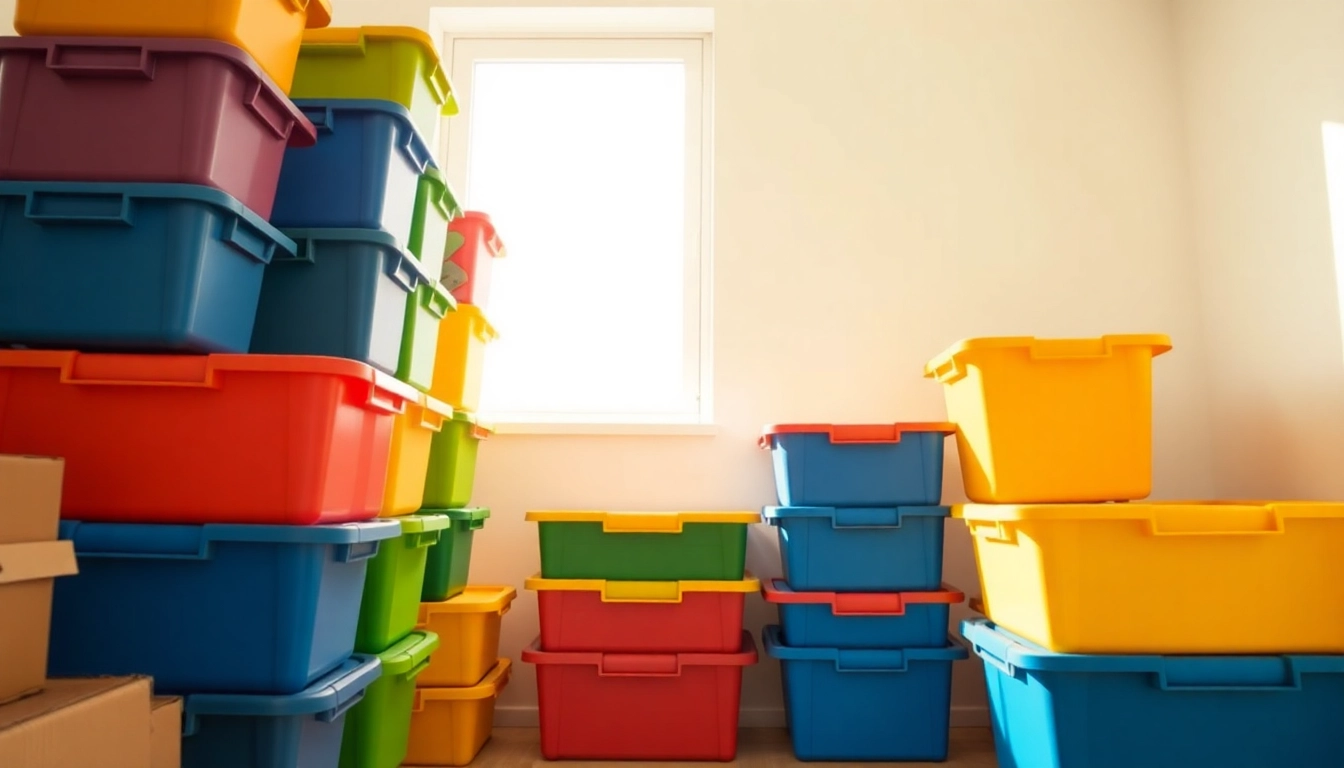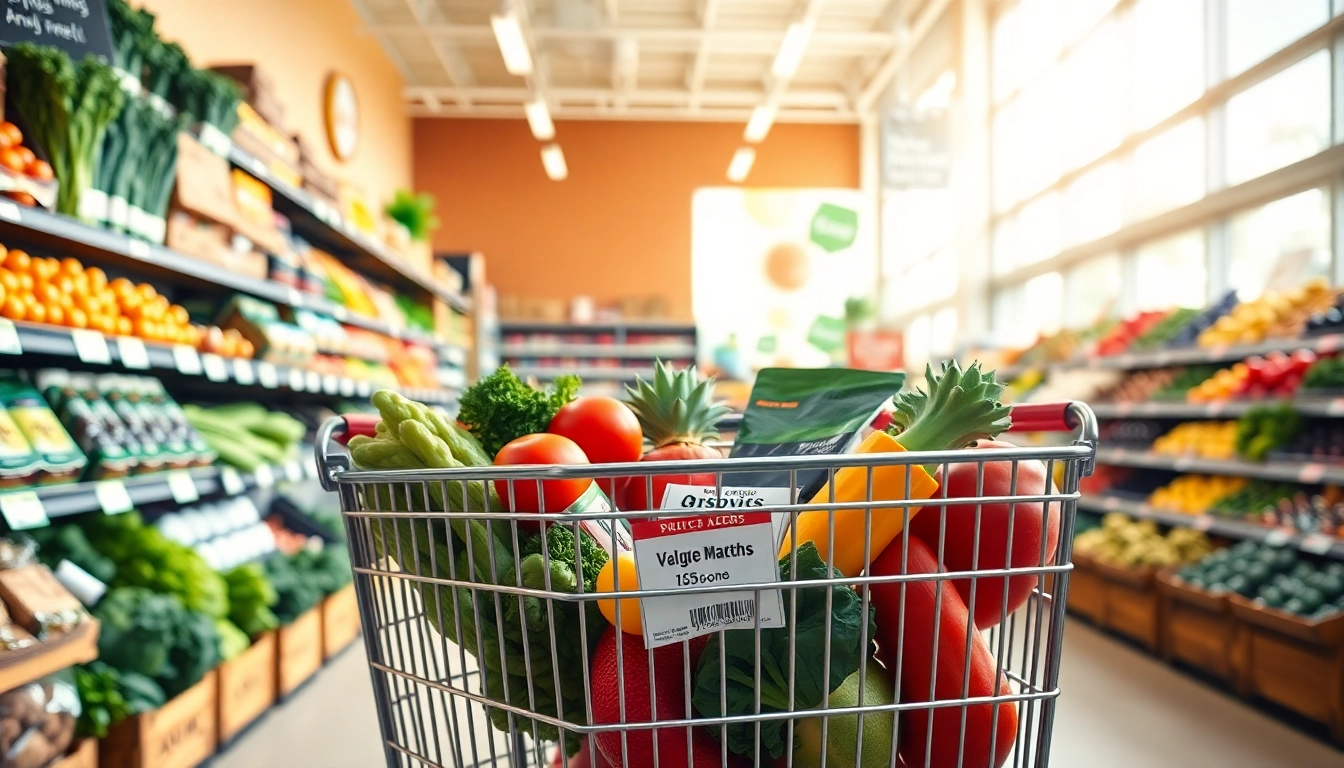Understanding Moving Bins
What Are Moving Bins?
Moving bins are solid, durable containers designed specifically to assist with the packing and transportation of goods during a relocation. Unlike traditional cardboard boxes, moving bins are often made from heavy-duty plastic, allowing them to withstand the rigors of transport and storage. Their design typically includes stackable features and secure lids to protect contents from damage while also making them easy to move. Whether you are relocating your household or your business, using moving bins can significantly enhance the efficiency and safety of your move.
Benefits of Using Moving Bins
Moving bins offer a multitude of advantages over traditional cardboard boxes. Firstly, they are exceptionally sturdy and reusable, which contributes to both their cost-effectiveness and environmental sustainability. Here are some key benefits:
- Durability: Made from high-quality plastic, moving bins are less likely to tear, crush, or degrade with moisture compared to cardboard boxes.
- Protection: The solid walls and secure lids offer enhanced protection for your items, reducing the risk of damage during transit.
- Efficiency: Many moving bins are designed to stack securely, optimizing storage space on moving trucks or in storage facilities.
- Ease of Handling: Bins often feature handles which make carrying and loading easy, even when fully loaded.
- Environmentally Friendly: By being reusable, moving bins help reduce paper waste associated with single-use cardboard boxes.
Types of Moving Bins Available
When selecting moving bins, it’s essential to consider the variety available. From general-purpose bins to specialized options, here are some types:
- Standard Plastic Bins: These are multi-purpose containers ideal for general household items.
- Heavy-Duty Bins: Built for robust items, these provide extra support to ensure no breakage during the moving process.
- Wheeled Bins: Some models come with wheels, facilitating ease of transport, particularly for heavy items.
- Stackable Bins: Designed to maximize space, stackable versions can be easily stored and transported without taking up extra room.
Choosing the Right Moving Bins
Factors to Consider When Selecting Moving Bins
When selecting the right moving bins for your needs, consider these key factors:
- Size: Evaluate what items you will be packing and select bin sizes that accommodate your belongings without wasting space.
- Material: Opt for durable plastic that can withstand the moving process. Avoid thinner materials that may not hold up under pressure.
- Features: Look for bins with secure lids, handles, and stackable designs to enhance usability and safety.
- Cost: Determine your budget. While reusable bins may seem pricier upfront, their longevity often makes them more cost-effective over time.
Comparing Plastic vs. Cardboard Moving Bins
The debate between plastic and cardboard moving bins is common among those planning a move. Here’s a comparative look at both:
| Criteria | Plastic Bins | Cardboard Boxes |
|---|---|---|
| Durability | High | Low to Moderate |
| Reusability | Yes | No |
| Water Resistance | Yes | No |
| Stackability | Yes | Limited |
| Cost | Higher initial investment | Lower initial investment |
In summary, while cardboard may be cheaper upfront, plastic bins provide a valuable long-term investment for repeated moves or storage needs.
Recommendations for Heavy-Duty Moving Bins
For those moving heavier items or requiring extra protection, heavy-duty moving bins are a wise choice. Here are some recommendations:
- Rubbermaid ActionPacker: This container features a locking latch and is exceptional for outdoor items.
- Homz Plastic Storage Bin: Known for its strength, it is a versatile option that stacks well.
- Bankers Box Heavy-Duty Storage Boxes: Although they are cardboard, they offer reinforced construction for heavier contents.
Renting vs. Buying Moving Bins
Advantages of Renting Moving Bins
Renting moving bins can be a practical solution for many movers. Here are some benefits:
- Cost-Effective for One-Time Moves: If you are not planning on moving frequently, renting can save you money.
- No Storage Space Required: You won’t have to worry about where to store bins after your move.
- Convenience: Many rental services provide delivery and pickup, simplifying the moving process.
When to Purchase Moving Bins
Purchasing moving bins might be the right choice if you plan to move multiple times or require a durable storage option. Consider buying if:
- You are a frequent mover or military personnel.
- You have valuable or fragile items that need adequate protection during transport.
- You prefer having readily available bins for organization around your home or office.
Cost Analysis of Renting vs. Buying
Examining the financial aspects can help you make the best decision:
Typical costs for renting moving bins range from $1 to $4 per day depending on the size and service provider. For a standard rental over a week, this can amount to approximately $28. In contrast, purchasing a robust set of moving bins usually falls between $50 and $150. While renting offers short-term savings, utilitarian considerations can make purchasing a more favorable long-term investment.
Best Practices for Packing with Moving Bins
How to Pack Efficiently Using Moving Bins
Proper packing within your moving bins is crucial to ensuring items are protected and organized. Here are steps to achieve optimal packing:
- Sort and Declutter: Before packing, sort through your items to determine what you truly need to take with you.
- Utilize Space Wisely: Place heavier items at the bottom and lighter items on top to maintain balance.
- Fill in Gaps: Use packing materials such as bubble wrap or towels to fill in empty spaces and prevent items from shifting.
- Secure the Lids: Make sure lids are properly closed to keep all items contained during transport.
Labeling Moving Bins for Easy Identification
Labeling your moving bins is essential for easy identification. Here are tips for effective labeling:
- Use Clear Labels: Label the contents of each bin clearly with a marker or printed tags.
- Color Coding: Utilize different colored labels for distinct rooms, which provides quick visual identification.
- Keep a List: Maintain an inventory list to track where everything is packed.
Organizing Moving Bins by Room or Category
Organizing bins systematically can greatly help during unpacking:
- By Room: Keep items from each room in separate bins to minimize confusion.
- By Category: If packing mixed items, categorize them (e.g., kitchen items, personal items) for easy access.
- Prioritize: Place essentials that you may need immediately on top or in easily accessible bins.
Where to Buy or Rent Moving Bins
Top Retailers for Purchasing Moving Bins
When looking to purchase moving bins, consider these reputable retailers:
- The Home Depot: A wide selection of moving supplies including robust plastic bins.
- Walmart: Offers affordable plastic storage bins in various sizes and shapes.
- Amazon: Various sellers provide extensive options with customer reviews for informed decisions.
Local Options for Renting Moving Bins
To rent moving bins, check with these local services:
- U-Haul: Provides rental services for plastic moving boxes, often with convenient pickup and drop-off options.
- Boxed Up: A rental service specializing in containers for moving and storage.
- Rent-A-Bin: Local providers offering flexible rental agreements for moving bins.
Online Marketplaces for Best Deals on Moving Bins
For those interested in exploring multiple options, online platforms like Facebook Marketplace, Craigslist, and local community forums can yield great deals on gently used bins or local rental options.



